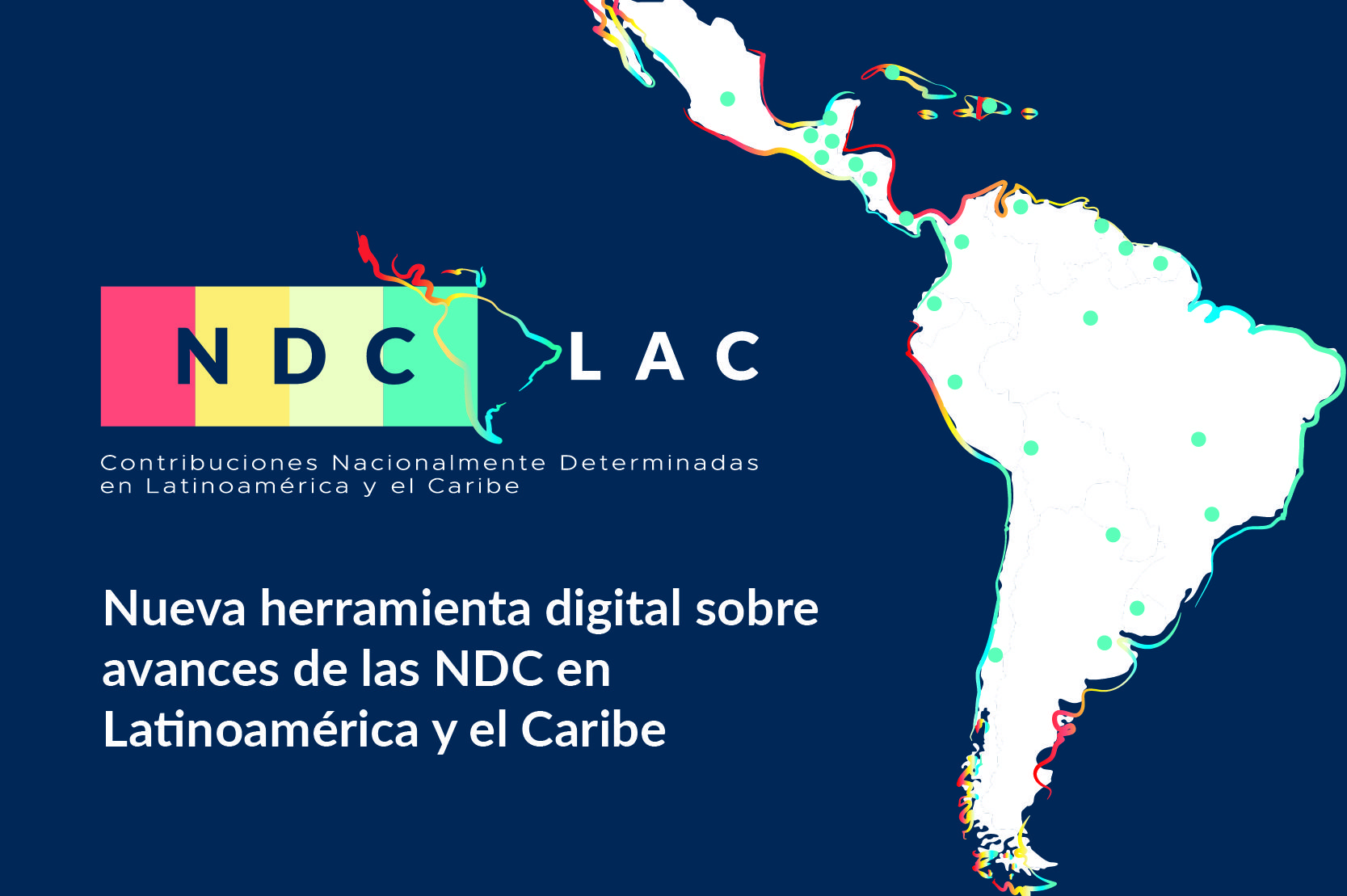The first platform in the Spanish language to reveal the status of progress on climate ambition and action (NDC) in Latin America and the Caribbean is now available.
On 4 September, as part of the activities of the Joint Regional Event “Climate Action in times of crisis: Boosting Sustainable post COVID-19 recovery in Latin American and the Caribbean”, the even to launch the LAC NDC digital tool took place, where participants were able to have a first look at its characteristics and potential.
The LAC NDC is a joint initiative of EUROCLIMA+, the Inter-American Development Bank (IDB), the United Nations Development Programme (UNDP), the Economic Commission for Latin America and the Caribbean (ECLAC), the German Society for International Cooperation (GIZ), the Avina Foundation and the LEDS LAC Regional Platform, a collaboration that aims to establish synergies that will increase the effectiveness and progress in the implementation of the Paris Agreement in Latin America and the Caribbean. The tool, whose information will be updated regularly, was developed by Libélula, a consultancy specializing in sustainability and climate change issues.
At the beginning of the session, Silvia Brugger, GIZ Coordinator for Climate Governance of the EUROCLIMA+ programme, presented the general characteristics of the tool and stated that it is "a dynamic and interactive digital tool that allows for the visualisation of information on the progress in the implementation and updating of the Nationally Determined Contributions (NDC) in Latin America and the Caribbean" and that at the same time, the LAC NDC "allows for the monitoring of national climate commitments to the Paris Agreement, improves the transparency of information, and directs support towards the countries of the region".
This initiative consolidates in one place the information from three complementary efforts: the EUROCLIMA+ Thematic Study 13 "Progress on Climate Action in Latin America: Nationally Determined Contributions to 2019", the results of the "Dialogue among Peers" initiative - an action financed by EUROCLIMA+ and implemented through a strategic alliance between GIZ and ECLAC with support from the Avina Foundation; the report LEDSenLAC 2019 "Towards resilient, low emission development in Latin America and the Caribbean", a study conducted by the LEDS LAC platform with the support of the IDB and UNDP, as well as EUROCLIMA+; and finally, the study "Overview of nationally determined contributions in Latin America and the Caribbean, 2019" conducted by ECLAC with support from EUROCLIMA+.
Based on these efforts, the tool provides information on the state of progress of the countries through quantitative and qualitative indicators in order to know the panorama of the country and the region with respect to national climate commitments, explained Maite Cigarán, Libelula's Communications Manager, who offered an interactive virtual tour of the tool, showing its potential.
Finally, Carlos Ruiz-Garvia, regional head of the UNFCCC Regional Collaboration Centre for Latin America, welcomed the initiative presented and reflected on the importance of having coordinated efforts, avoiding the dissemination of instruments and tools, but at the same time aligning our efforts and synergies with the negotiation processes to support countries in the challenges they may have in terms of sustainability. Likewise, Ruiz-Garvia highlighted the contribution of the tool for strengthening transparency in climate information -public and visible-, in line with the guidelines for the preparation of the Enhanced Transparency Framework and thereby promoting an increase in climate ambition in accordance with the Paris Agreement so that countries can take advantage of this opportunity.
About EUROCLIMA+
EUROCLIMA+ is a programme financed by the European Union to promote environmentally sustainable and climate-resilient development in 18 Latin American countries, particularly for the benefit of the most vulnerable populations. The Programme is implemented under the synergistic work of seven agencies: the Spanish Agency for International Development Cooperation (AECID), the French Development Agency (AFD), the Economic Commission for Latin America and the Caribbean (ECLAC), the German Society for International Cooperation (GIZ), Expertise France (EF), the International and Ibero-American Foundation for Administration and Public Policy (FIIAPP), and the UN Environment Programme.

